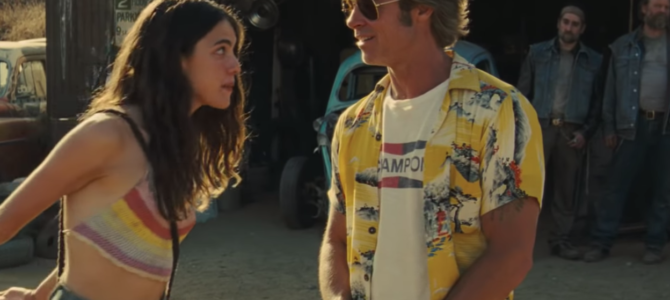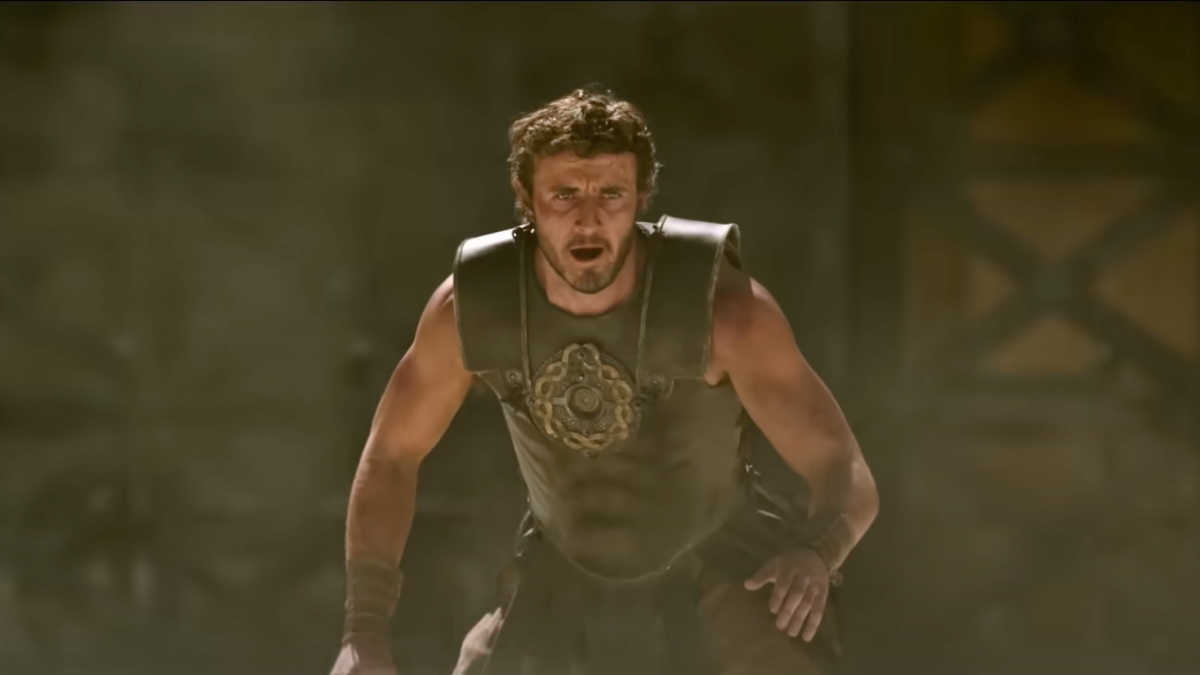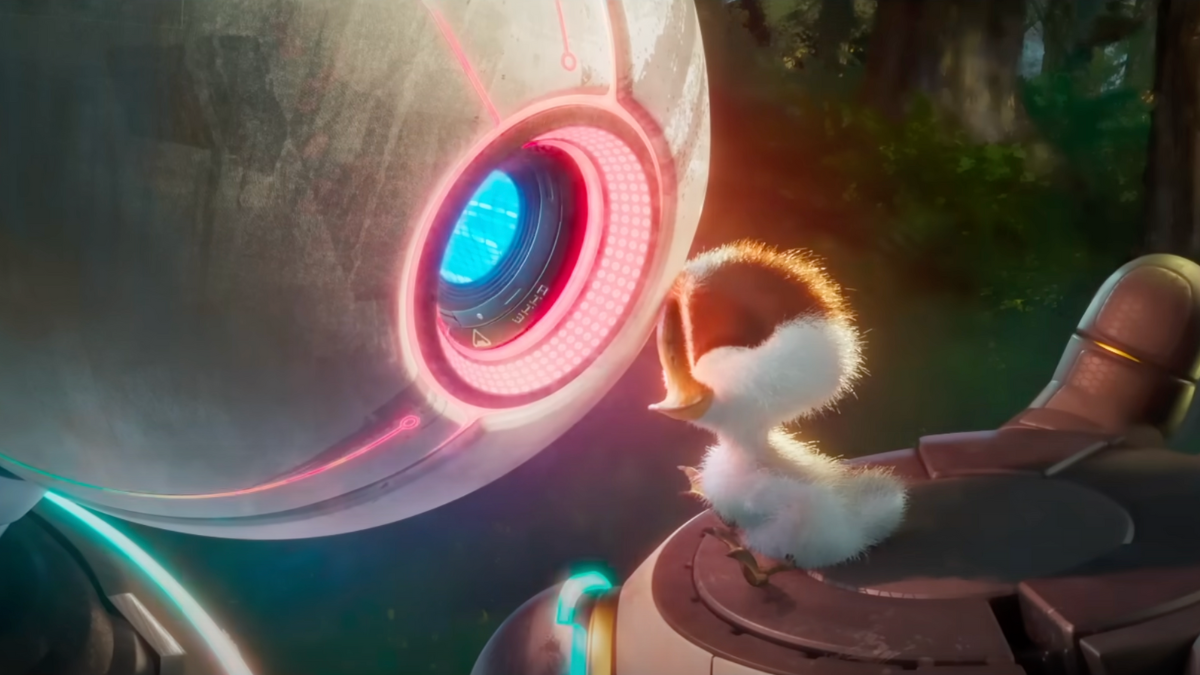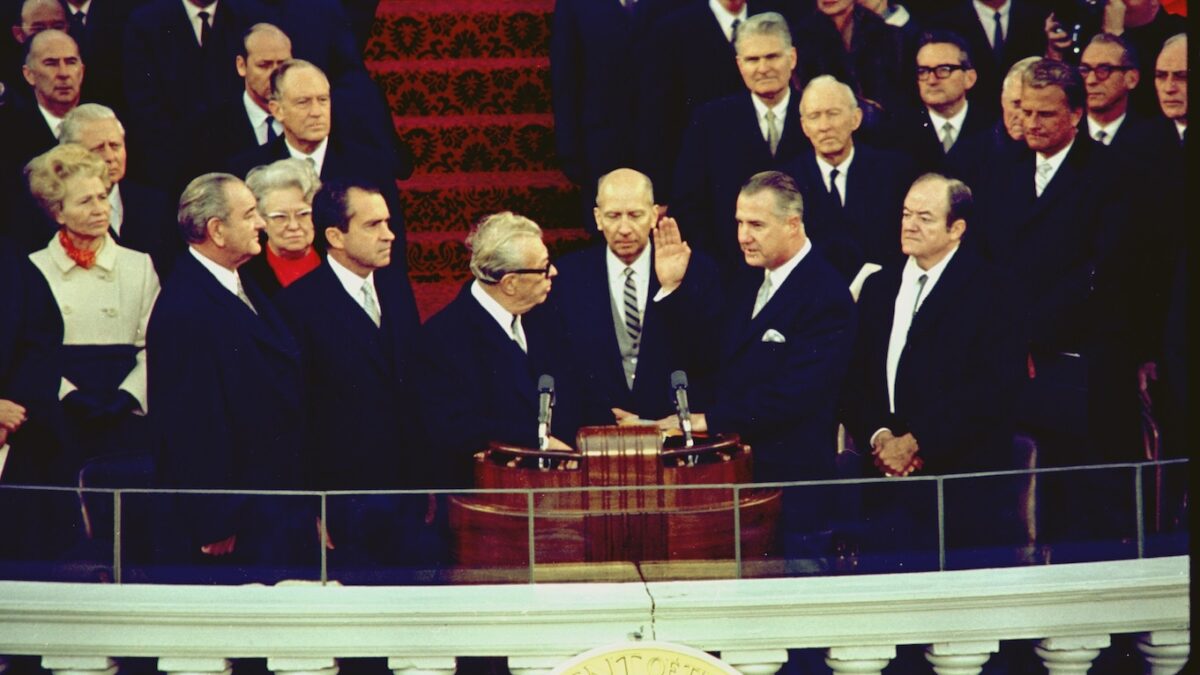
Quentin Tarantino’s new film, “Once Upon a Time…In Hollywood,” is, as its title implies, a modern fairy tale. It seeks to rewrite history and right the tragic wrongs of the late 1960s — specifically, the slaying of actress Sharon Tate and several others by Charles Manson’s acolytes. It’s also a wistful, laconic paean to a specific time and place (Los Angeles and Hollywood in 1969) and its attendant pop culture (TV, movies, music, and even advertising billboards and radio jingles).
The period details are perfect, but something deeper is going on in “Once Upon a Time.” Tarantino — whom no one would ever describe as a cultural or political conservative — has, intentionally or not, created a rich and moving tribute to classic masculine virtues and age-old heroic ideals. These are subjects routinely embraced by traditionalists but met with derision and scorn by the same left-wing, West Coast progressives who, ironically, helped bring the movie to the screen and will wind up benefiting financially from its box office success.
Setting the Scene
The movie focuses on two men: Rick Dalton (Leonardo DiCaprio), former star of a 1950s TV Western relegated to playing occasional bit parts on other shows, and Cliff Booth (Brad Pitt), his stunt double. Rick and Cliff are close friends, but they are also in a business relationship. Thanks to a number of drunk-driving arrests, Rick is no longer allowed to drive, so he pays Cliff to chauffeur him around town, make sure he gets to work on time, and essentially act as his “gofer.”
It’s been a long time since Cliff worked as Rick’s stunt double; both are edging into their 40s, adrift to varying degrees, and facing shaky career prospects. Rick is battling the stigma of being a has-been TV star. He failed to parlay his early success on small-screen Westerns into a big-screen movie career.
Now Westerns, and ultra-masculine leading men such as Rick who shoot first and ask questions later, are declining in popularity. Studio execs are moving on to edgier fare such as “Rosemary’s Baby,” directed by Rick’s new neighbor (and Sharon Tate’s husband), Roman Polanski. The cinematic revolution of the 1970s and downbeat films focusing on troubled anti-heroes, such as “One Flew Over the Cuckoo’s Nest,” are just around the corner.
Meanwhile, Cliff is something of a pariah in the film industry. He finds it difficult to get any stunt work for Rick or anyone else because he killed his wife. He avoided jail time, so the implication is that it was an accident, but Tarantino keeps the details vague, and suspicions linger. As a stunt coordinator (the great Kurt Russell in a cameo) says of Cliff, “I don’t dig him, and I don’t dig the vibe he brings on a set.”
Not Your Typical ‘Bromance’
One of the unexpected pleasures of Tarantino’s film is his depiction of Rick and Cliff’s friendship. We rarely see relationships between adult men portrayed seriously on the big screen. I went into the movie expecting Tarantino to employ a typical “bromance” pastiche, albeit executed in his inimitable style.
You know the drill: We’d see the two Hollywood guys hit the bars and use Rick’s fading celebrity to pick up women, a sex scene would follow, and then maybe a drunken brawl. When it was over, the two would get up, dust themselves off, smile sleazily at one another, and exchange high-fives.
But Tarantino surprised me. Rick and Cliff aren’t dudes or “bros.” They’re men — imperfect, with plenty of self-inflicted wounds and stupid choices behind them, but grown-ups nonetheless. They don’t troll pickup bars looking for vulnerable women, and Tarantino doesn’t throw in any gratuitous sex or nudity.
In fact, “Once Upon a Time” is a surprisingly chaste film. Rick and Cliff split their time between working or looking for work and finding excuses to hang out together, drink beer, and watch Rick’s latest guest spot on a TV crime drama. They both have rural-tinged accents and blue-collar backgrounds. At one point, Rick mentions he’s from Missouri.
They also open up to one another. Cliff has no illusions about his role as Rick’s glorified butler and tells him so, without any malice. Early in the movie, Rick has a meltdown over his foundering career.
“Alright, what’s the matter, partner?” Cliff asks.
“It’s official, old buddy,” Rick replies. “I’m a has-been.” They’ve been playing cowboys so long, they’ve started to talk like them.
Near tears, Rick buries his head in Cliff’s shoulder, then, realizing what he’s done, quickly pulls away and apologizes. Instead of making a wisecrack, Cliff, who is slightly taken aback, claps him on the shoulder and gives him a quick pep talk. Subsequently, Cliff buoys Rick’s confidence before he starts another humiliating guest-star gig by telling him, “Hey, you’re Rick f-cking Dalton. Don’t you forget it.”
Tender Is the Knight
The two characters follow separate but related arcs. Rick begins the film as a kind of king in exile. He must overcome his demons and find a way to succeed in a new Hollywood system that has cast him out, seemingly for good. In the past, he was a ruler of this realm; now he must reclaim his throne without selling his soul, even if that means swallowing his pride and acting in low-budget “spaghetti Westerns” in Italy.
Cliff, on the other hand, represents the classic knight archetype, and his role is twofold: to protect his king (Rick) and to overcome his past mistakes (and nature) by becoming a man worthy of respect. He does this by adhering to knightly virtues straight out of medieval chivalric literature: honor, loyalty, integrity, and courage.
If these sound vaguely familiar, remember that TV and movie cowboys of the 1940s and 1950s were basically knights in cowboy hats. To succeed, Rick and Cliff must embrace the best and noblest aspects of the fictional characters they have spent their lives portraying, characters with deep roots in the classic Western tradition — Western civilization, that is.
We see this archetypal journey play out across the movie. Cliff picks up a beautiful, young hippie named Pussycat (Margaret Qualley, in a brief but star-making performance), who, unbeknownst to him, is also a member of the Manson family. He agrees to drive her to a ranch where she and her friends are staying. The ranch, which contains a realistic replica of an Old West town, was used as a location in many TV shows and movies. Cliff worked there often and knows the owner. He decides to drop in, say hello, and make sure everything is okay.
On the drive to the ranch, Pussycat offers to perform a sex act on Cliff, but he refuses, ostensibly because he thinks the girl might be underage, and he wants to avoid prison. But in fact, we are watching a knight on a quest, and one of the stages of that quest is to avoid temptation and protect the woman’s virtue, however far she has already fallen.
The Hero We All Need
Later, at the ranch, Cliff demands to see George Spahn despite the Manson family’s objections. His old friend is blind and somewhat disoriented; the Manson clan are clearly taking advantage of him. Cliff tries to help but is rebuffed. He reluctantly leaves, and on the long walk back to his car, the dozens of hippies living there jeer menacingly at him.
He finds a knife in one of his tires, and rather than change it himself, he forces the perpetrator, a shaggy-haired man with a cackling laugh, to put on the spare. Despite the clear and very real threat the family poses, Cliff stands on principle.
His knightly quest culminates in a violent scene that I won’t spoil, but it’s fair to say Cliff exacts revenge not just for what the Manson family “bad guys” try to do to him and Rick, but for what they did to Spahn. They bespoiled him of the ranch, descending on it like locusts, and, worst of all, stripped it of its Hollywood magic. In Tarantino’s world, this is tantamount to a desecration of the holy and can’t be tolerated.
By the end of the movie, Cliff and, to a lesser extent, Rick have become the characters they spent years playing on screen: Cliff as a stunt double and Rick as the lead actor. They have successfully transformed themselves into modern-day cowboys by finding a way to transfer the noble virtues performed on the silver screen into real life.
In this post-Christian era, one could argue that modern movies and pop culture are the new religion, and movie theaters the new cathedrals. If that’s the case, then at least Tarantino has his characters worshiping at the right altar: the classic Hollywood films of a bygone era that celebrated the virtues of heroism and doing the right thing, even in the face of danger.
“You’re a good friend, Cliff,” Rick says, in one of the movie’s closing scenes.
“I try,” Cliff replies.
It’s the perfect answer from a flawed knight.









